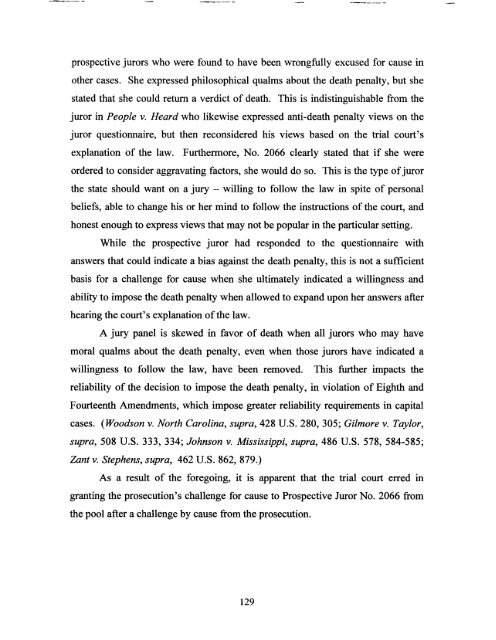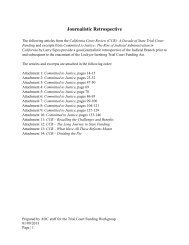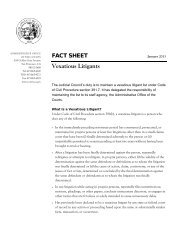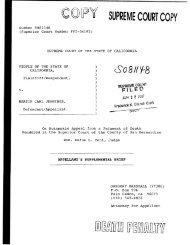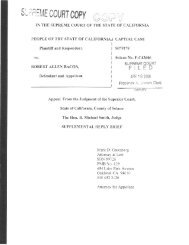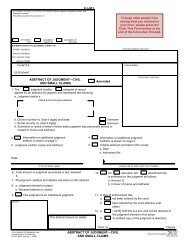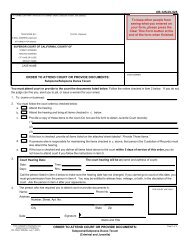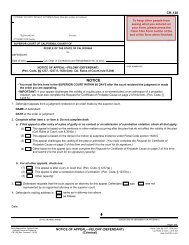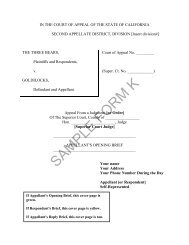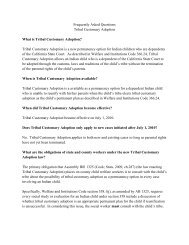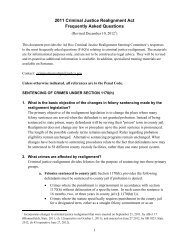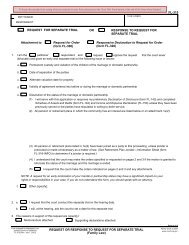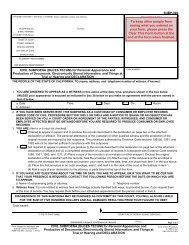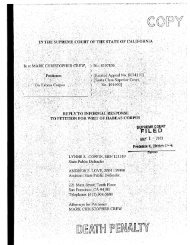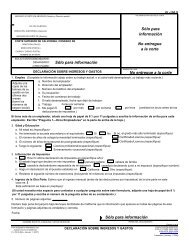Appellant, William Satele, Reply Brief - California Courts - State of ...
Appellant, William Satele, Reply Brief - California Courts - State of ...
Appellant, William Satele, Reply Brief - California Courts - State of ...
You also want an ePaper? Increase the reach of your titles
YUMPU automatically turns print PDFs into web optimized ePapers that Google loves.
prospective jurors who were found to have been wrongfully excused for cause in<br />
other cases. She expressed philosophical qualms about the death penalty, but she<br />
stated that she could return a verdict <strong>of</strong> death. This is indistinguishable from the<br />
juror in People v. Heard who likewise expressed anti-death penalty views on the<br />
juror questionnaire, but then reconsidered his views based on the trial court's<br />
explanation <strong>of</strong> the law. Furthermore, No. 2066 clearly stated that if she were<br />
ordered to consider aggravating factors, she would do so. This is the type <strong>of</strong>juror<br />
the state should want on a jury - willing to follow the law in spite <strong>of</strong> personal<br />
beliefs, able to change his or her mind to follow the instructions <strong>of</strong> the court, and<br />
honest enough to express views that may not be popular in the particular setting.<br />
While the prospective juror had responded to the questionnaire with<br />
answers that could indicate a bias against the death penalty, this is not a sufficient<br />
basis for a challenge for cause when she ultimately indicated a willingness and<br />
ability to impose the death penalty when allowed to expand upon her answers after<br />
hearing the court's explanation <strong>of</strong>the law.<br />
A jury panel is skewed in favor <strong>of</strong> death when all jurors who may have<br />
moral qualms about the death penalty, even when those jurors have indicated a<br />
willingness to follow the law, have been removed. This further impacts the<br />
reliability <strong>of</strong> the decision to impose the death penalty, in violation <strong>of</strong> Eighth and<br />
Fourteenth Amendments, which impose greater reliability requirements in capital<br />
cases. (Woodson v. North Carolina, supra, 428 U.S. 280, 305; Gilmore v. Taylor,<br />
supra, 508 U.S. 333, 334; Johnson v. Mississippi, supra, 486 U.S. 578, 584-585;<br />
Zant v. Stephens, supra, 462 U.S. 862, 879.)<br />
As a result <strong>of</strong> the foregoing, it is apparent that the trial court erred in<br />
granting the prosecution's challenge for cause to Prospective Juror No. 2066 from<br />
the pool after a challenge by cause from the prosecution.<br />
129


